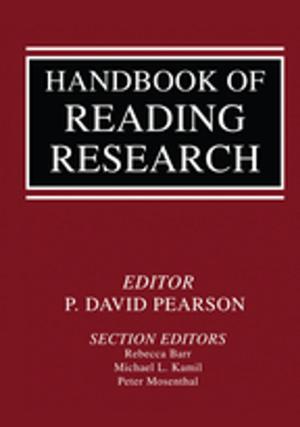Media Competition and Coexistence
The Theory of the Niche
Nonfiction, Reference & Language, Law, Media & the Law, Language Arts, Communication, Social & Cultural Studies, Social Science| Author: | John W. Dimmick | ISBN: | 9781135650315 |
| Publisher: | Taylor and Francis | Publication: | December 18, 2002 |
| Imprint: | Routledge | Language: | English |
| Author: | John W. Dimmick |
| ISBN: | 9781135650315 |
| Publisher: | Taylor and Francis |
| Publication: | December 18, 2002 |
| Imprint: | Routledge |
| Language: | English |
This volume considers how media firms, as well as entire industries, exist and persist over time despite what often seems to be intense competition for such resources as audiences and advertisers. Addressing competition within and among media organizations and industries, including broadcasting, cable, and the Internet, author John W. Dimmick studies the media industries through the niche theory lens, developed by bioecologists to explain competition and coexistence. He examines the targets of the different media--audience, advertisers, money--and how they compete, using examples from a variety of studies.
Each chapter incorporates relevant economic constructs into the analytic framework. This approach includes the use of economics of scale to explain selection and firm mortality in newspapers and movie theaters; the application of the transaction costs concept to explicate the rise of advertising agencies; the employment of the strategic group concept in analyzing the niche breadth strategy; and the measurement of gratifications-utilities.
A comprehensive overview of the determinants of media competition and coexistence, Media Competition and Coexistence: The Theory of the Niche offers unique insights for scholars, students, researchers, and practitioners in media economics, management, and business.
This volume considers how media firms, as well as entire industries, exist and persist over time despite what often seems to be intense competition for such resources as audiences and advertisers. Addressing competition within and among media organizations and industries, including broadcasting, cable, and the Internet, author John W. Dimmick studies the media industries through the niche theory lens, developed by bioecologists to explain competition and coexistence. He examines the targets of the different media--audience, advertisers, money--and how they compete, using examples from a variety of studies.
Each chapter incorporates relevant economic constructs into the analytic framework. This approach includes the use of economics of scale to explain selection and firm mortality in newspapers and movie theaters; the application of the transaction costs concept to explicate the rise of advertising agencies; the employment of the strategic group concept in analyzing the niche breadth strategy; and the measurement of gratifications-utilities.
A comprehensive overview of the determinants of media competition and coexistence, Media Competition and Coexistence: The Theory of the Niche offers unique insights for scholars, students, researchers, and practitioners in media economics, management, and business.















